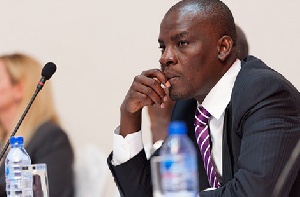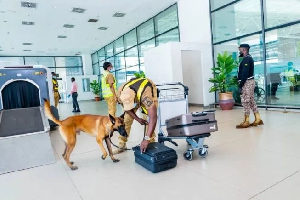Businesses in the country have not made the most of the enormous opportunities that the United States government’s African Growth and Opportunity Act (AGOA) presents, Haruna Iddrisu, Trade and Industry Minister, has said.
AGOA is the US government’s trade initiative with 39 sub-Saharan African countries. There are over 7,000 products that are available under the AGOA and Generalised System of Preferences (GSP) list to enter the United States duty-free.
The programme has spurred the export of processed agricultural products, manufactured goods, apparel and footwear from qualifying nations.
However, the country, according to the Trade Minister, “has not made the most of the existing AGOA opportunity”.
Compared to peer-countries, Ghana’s exports to the US under AGOA have not been significant. In 2012, the country exported US$245million under AGOA to the US, which was only one-quarter of Côte d’Ivoire’s exports of US$995million. Kenya, an economy that is about the same size as Ghana’s, exported US$355million in the period.
In the first 11 months of 2013, Ghana’s export value was US$293million, compared to Côte d’Ivoire’s US$805million and Kenya’s US$384million. Ghana’s exports have also fallen from a peak of US$748million in 2011.
Mr. Iddrisu made his comments at a stakeholder forum on the National Crusade Against Trade in Pirated Ghanaian Textile Designs and Trademarks held in Accra.
The forum was attended by textile producers, retailers, the Ghana Revenue Authority (GRA), the Ghana Immigration Service, and other stakeholders to fashion out ways of addressing the nagging issue.
The Minister described the influx of copied local textile designs as a “threat to the national textile industry”, which also presents an imminent national crisis that must be dealt with in all its facets.
Takoradi Port was in 2006 designated as the only entry point for the importation of textiles. However, this was expanded to include the Kotoka International Airport and the Tema Harbour, but later reviewed again to allow entry via all borders.
This, the anti-piracy taskforce contends, opened the floodgates for an influx of pirated textiles.
Mr. Iddrisu urged security personnel manning the borders to be vigilant and stop the entry of pirated textiles. “There is no government policy to ban textile importation but to regulate it through approved routes for statistical purposes, and to ensure only genuine designs are imported. We respect intellectual property rights.”
The anti-piracy taskforce was created by the Ministry of Trade and Industry in 2008 and reconstituted in June last year. A committee was also instituted to vet any design that an importer intends to import for sale in Ghana.
Business News of Friday, 7 February 2014
Source: B&FT













